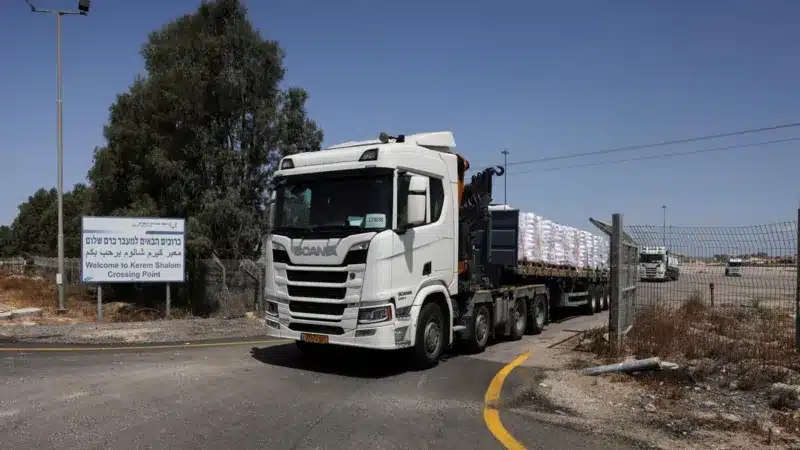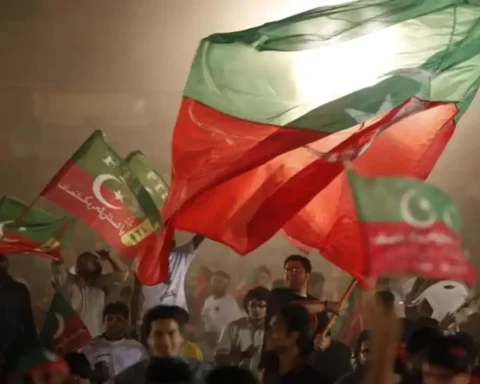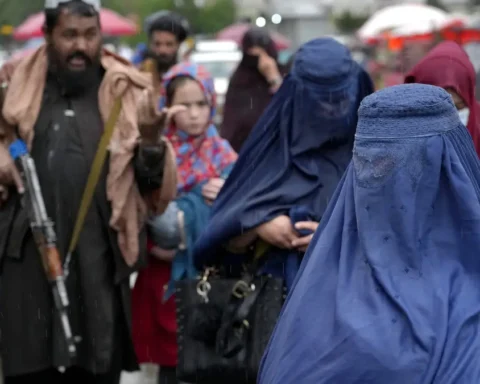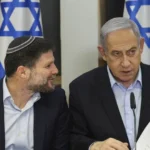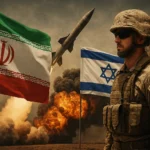Israel Allows Minimal Aid Into Gaza Amid Escalating Offensive and Famine Fears
Key Developments:
-
Limited Aid Resumes After 11-Week Blockade
-
Israel permitted five UN aid trucks (carrying baby food and essentials) into Gaza following intense U.S. pressure, marking the first delivery since March.
-
PM Netanyahu framed the move as tactical, warning aid would stop once Israel establishes military-controlled distribution hubs—a plan the UN rejects.
-
-
“Unprecedented Attack” Looms in Khan Younis
-
Israel ordered mass evacuations in southern Gaza, signaling a major assault.
-
Strikes killed 40+ people Monday, including displaced families sheltering in a Nuseirat school.
-
-
Famine Crisis Deepens
-
57 children have died from malnutrition in 11 weeks (Hamas-run health ministry).
-
500,000+ Gazans face starvation (UN-backed IPC report).
-
Displaced families survive on one meal a day, with 80% of community kitchens closed due to shortages.
-
-
Political Backlash in Israel
-
Far-right ministers condemned Netanyahu’s aid decision, calling it “oxygen for Hamas.”
-
Netanyahu defended it as diplomatically necessary, citing U.S. concerns over “images of starvation.”
-
-
Humanitarian vs. Military Logic
-
UN/Aid Groups: Demand unrestricted access, accusing Israel of violating international law.
-
Israel: Blames Hamas for stealing aid (unproven) and insists on military-supervised distribution.
-
Why This Matters:
-
Strategic Dilemma: Israel balances military goals (eradicating Hamas) with global pressure to avert famine.
-
US Role: Senators warned Netanyahu that starvation imagery risks losing Western support.
-
Long-Term Crisis: Even minimal aid fails to address catastrophic shortages of food, medicine, and fuel.
Quotes Highlighting the Crisis:
-
“My children go to sleep hungry.” — Gaza resident.
-
“This plan will leave Palestinians hungry.” — José Andrés (World Central Kitchen).
-
“We cannot handle images of starvation.” — U.S. senators to Netanyahu.
What’s Next?
-
Expanded Ground Offensive: Israel vows to “take control of all areas” of Gaza.
-
Aid Deadlock: UN refuses to cooperate with Israel’s militarized distribution plan.
-
Ceasefire Talks: No progress in Qatar-hosted negotiations; 58 hostages remain in Gaza.
Conclusion:
Israel’s token aid concession falls far short of Gaza’s needs, while its military campaign risks exacerbating civilian suffering. With the UN and Israel at odds over aid delivery, the crisis hinges on whether diplomatic pressure can force a broader opening of crossings—or if famine becomes another weapon of war.
The Bottom Line:
A stopgap food shipment won’t end Gaza’s nightmare. Without a ceasefire or sustained aid flow, starvation will escalate alongside the bombs.

